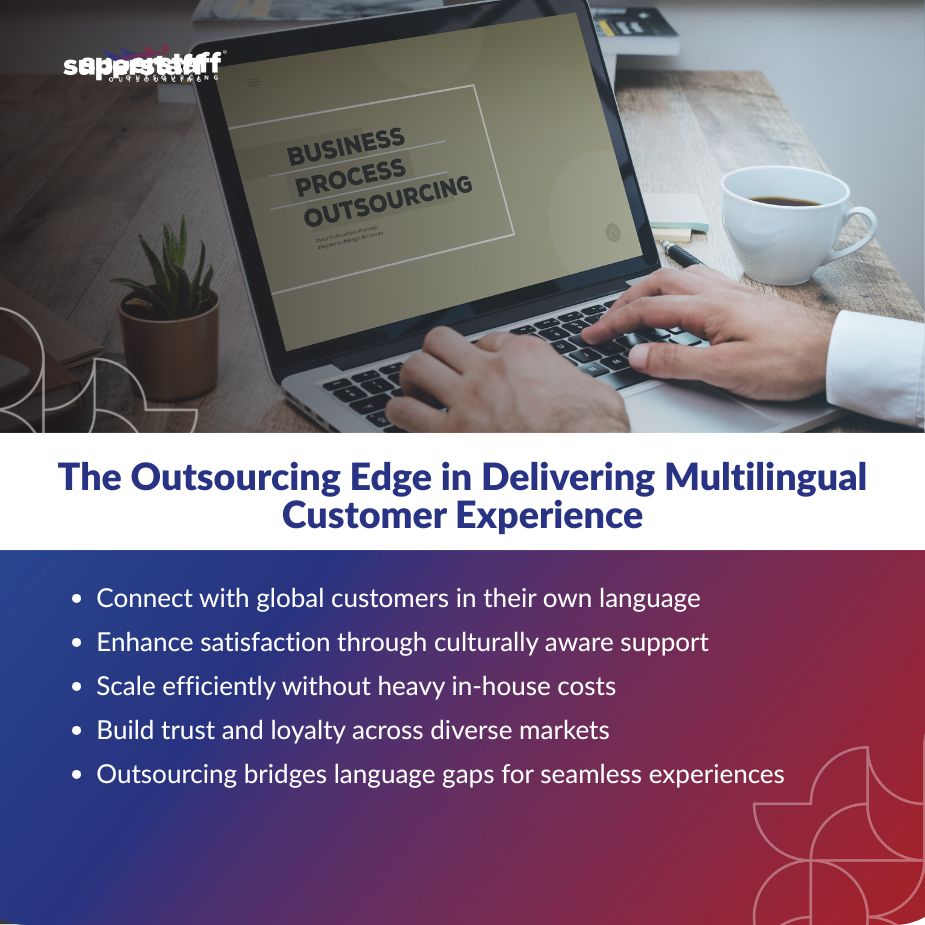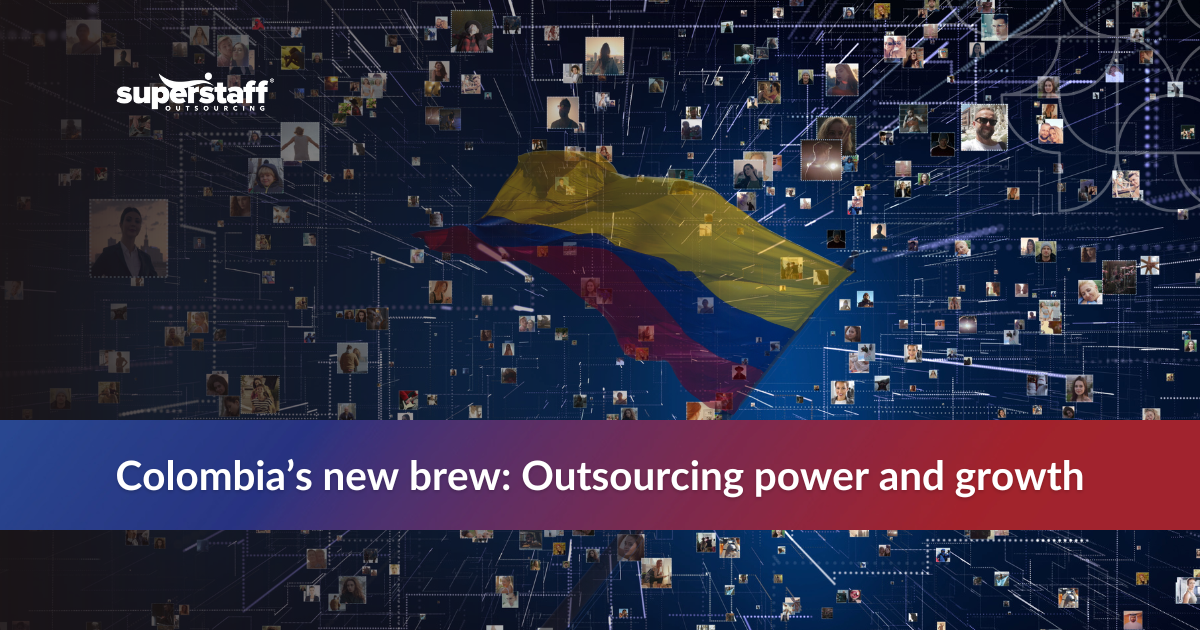
Global businesses are serving customers who speak different languages, and expectations for clear, native-language support are rising quickly. Customers want to feel understood, whether they are shopping online, booking travel, or reaching out for technical help. Companies that cannot meet this demand risk losing trust and missing growth opportunities.
Multilingual customer experience outsourcing gives businesses a practical way to meet these expectations. Instead of building expensive in-house teams, organizations can rely on skilled outsourcing partners who already manage multilingual operations. This makes it easier to deliver high-quality service, scale support as needed, and expand into new markets without unnecessary complexity.

Understanding Multilingual Customer Experience Outsourcing
Outsourcing multilingual support is not only about translation. It is about creating a direct connection with customers across cultures and regions.
1. What It Means
Multilingual customer experience outsourcing is the practice of hiring third-party providers to handle customer service across multiple languages.
2. Why It Matters
Customers are more likely to stay loyal when they can communicate in their own language. Outsourcing helps companies meet that need at scale.
3. Market Growth
Global e-commerce, SaaS platforms, and international travel all depend on multilingual support to maintain smooth customer experiences.
4. Beyond Translation
True multilingual customer service requires cultural awareness and the ability to address customer needs naturally.
5. Outsourcing’s Role
Delivering multilingual CX through outsourcing allows businesses to manage language diversity without the cost and stress of hiring in-house teams.
Why Outsourcing Strengthens Multilingual Service Delivery
Outsourcing creates real advantages for businesses handling customer interactions across multiple languages.
1. Access to Skilled Professionals
Providers employ trained, bilingual, and multilingual agents who understand customer expectations.
2. Lower Costs
Building and training an internal team for every language is costly. Multilingual customer experience outsourcing reduces hiring and infrastructure expenses.
3. Flexible Scaling
Businesses can expand or reduce their support teams depending on demand cycles.
4. Technology Integration
Many outsourcing providers use advanced tools for language routing, translation, and workforce management.
5. Reduced Burden
Companies save time and resources by letting outsourcing providers manage recruitment, training, and quality control.
Key Benefits of Multilingual Customer Experience Outsourcing
The right outsourcing setup delivers consistent benefits across industries.
- Customer Loyalty: Speaking to customers in their language builds stronger relationships.
- Market Reach: Businesses can grow into new regions with confidence.
- Service Quality: Multilingual customer service maintains consistent standards across languages.
- Efficiency: Outsourcing ensures faster response times by spreading teams across time zones.
- Adaptability: Businesses can test new markets without committing to permanent staffing.
Challenges and Limitations to Address
Outsourcing has clear strengths, but companies need to prepare for possible challenges.
1. Cultural Accuracy
Fluent language skills must be paired with an understanding of local norms.
2. Data Security
Providers must comply with strict data protection standards across multiple regions.
3. Cost Balance
Although outsourcing reduces costs, some languages may require higher investment due to talent availability.
4. Brand Alignment
Agents must be trained to match the company’s voice and service approach.
5. Dependence on Partners
The quality of multilingual customer experience outsourcing depends heavily on the chosen provider.
Practical Considerations for Businesses
Before choosing outsourcing, companies should evaluate specific needs and goals.
1. Language Priorities
Identify which languages matter most to your customer base.
2. Support Channels
Decide whether the service should cover phone, email, chat, and social platforms.
3. Cost Review
Compare the expense of outsourcing with in-house and offshore models.
4. Compliance Needs
Check regulations in all markets, especially around labor and data security.
5. Long-Term Strategy
Plan for scalability to support business growth.
How to Select the Right Partner
The success of multilingual outsourcing depends on the provider’s ability to deliver.
1. Proven Experience
Check whether the provider has managed multilingual support for international clients.
2. Training and Quality Systems
Strong training programs ensure consistent performance across languages.
3. Scalability
Choose a partner able to expand coverage quickly as your markets grow.
4. Seamless Integration
Evaluate how easily outsourced teams fit into your existing platforms and tools.
5. Transparent Reporting
Look for partners that provide regular updates on performance and quality.
How Outsourcing Improves the Customer Journey
A well-managed outsourcing strategy strengthens customer experiences worldwide.
1. Faster Service
Customers benefit from reduced wait times when multilingual teams are available.
2. Improved Satisfaction
Native-language support makes customers feel valued.
3. Consistency Across Regions
Multilingual customer service ensures quality no matter the market.
4. Expanded Access
Companies can serve customers in multiple regions at once.
5. Loyalty and Retention
Better communication helps customers stay connected to the brand.
SuperStaff’s Role in Multilingual Outsourcing
SuperStaff has experience in multilingual customer experience outsourcing, supporting businesses with scalable and compliant solutions. The company manages teams across industries, helping clients align service models with business goals. SuperStaff delivers flexibility, consistency, and quality, making it easier to support global customer bases effectively.
Expanding Global Reach Through Multilingual Outsourcing
Multilingual customer experience outsourcing is a smart way for companies to deliver better service, reach new markets, and reduce costs. It gives businesses access to skilled language professionals, ensures cultural accuracy, and provides flexibility for scaling operations.
For decision-makers asking how to outsource multilingual customer service for better CX, the answer lies in choosing the right partner. Outsourcing providers handle the complexities of multilingual service so businesses can focus on growth and strategy.
SuperStaff helps companies succeed by delivering multilingual CX through outsourcing with proven systems and experienced teams. With the right partner, businesses can strengthen customer satisfaction, build loyalty, and expand globally with confidence.






